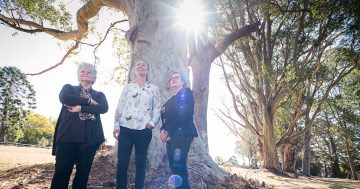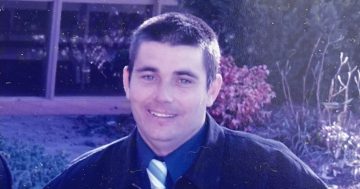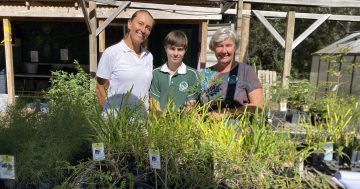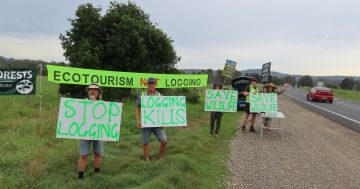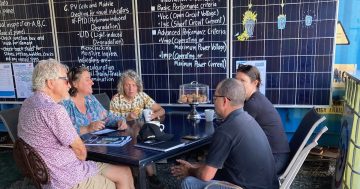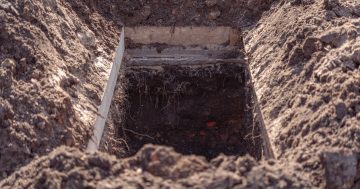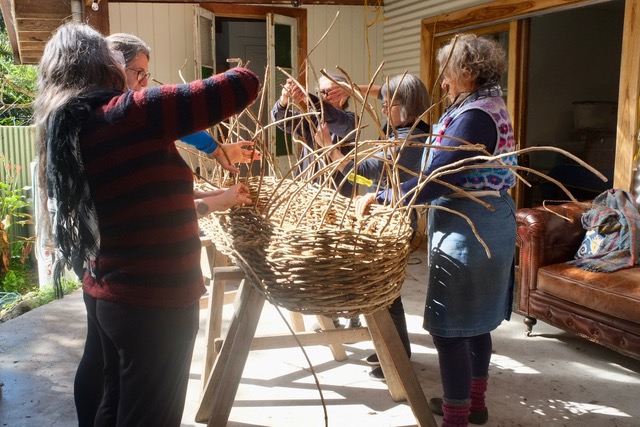
Join a coffin weaving workshop at Walawaani Way in Bodalla on 25 October. Photo: Jo Immig.
Growing interest in doing death differently means workshops by two artists teaching the time-honoured crafts of weaving coffins and making shrouds are proving popular.
Practical and contemplative, the workshops are part of a weekend designed to be a starting point to talk, understand and share ideas around death, dying, grief and care in the most environmentally sensitive ways.
Visual artist Michele Elliot from the Illawarra and Byron Bay fibre artist Zimmi Forest will conduct the workshops at Walawaani Way in Bodalla in late October.
Walawaani Way is Australia’s first 100 per cent natural conservation burial site. Founder Fiona McCuaig wants to do death better by taking burials back to nature and time immemorial.
Ms Elliot said shrouds dated back to the 15th century in England and were used in many faiths including Hindu, Jewish and Muslim.
“With the medicalisation of death and the growth of the funeral industry we were removed from the experience of taking care for the deceased,” she said. “What is happening now is the demystification of death, and a return to being involved.”
Ms Elliot found closure by making a shroud for her mother . The time she spent dyeing and making the shroud was a reflective one and a very personal way to say goodbye. She then went to the mortuary, washed her mother and wrapped her in the shroud.
“It was active care and very cathartic,” Ms Elliot said. “It was like I had said everything and felt everything, so I could be fully present for everyone else at the funeral.”
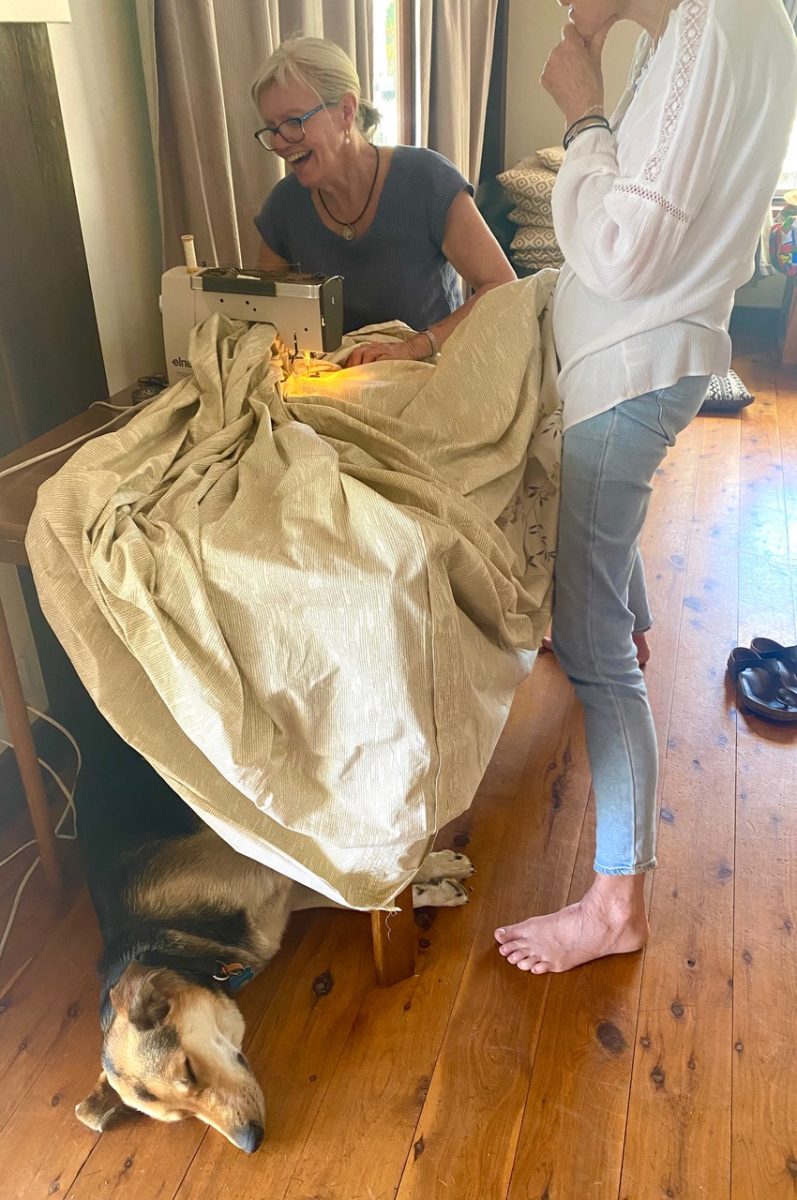
People come to shroud making workshops with curiosity and good humour. Photo: Supplied.
Ms Forest said woven coffins had been made in the Northern Hemisphere for centuries and many countries, including the UK, continued the tradition.
She started weaving coffins around two years ago after Nadia De Souza from Organic Landcare in the Northern Rivers invited her to a 2833-hectare property that was infested with the invasive cat’s claw vine. She thought the woody vine could be good weaving material. Weaving coffins had been in the back of her mind for some time.
Each coffin takes around 60 people hours so it is something that families can do over a weekend.
“It is very supportive of the grieving experience,” Ms Forest said. “They are focusing on the last single item that person will have. It has a ripple effect too because people realise how important it is to do grief well.”
Cat’s claw vine came from Brazil about 50 years ago. It kills native flora by suffocation. It climbs up trees, preventing them from shedding bark when they need to. At the top of the tree the vine spreads out, blocking light from the tree’s leaves.
Ms Forest said the vine was incredibly sturdy, but when used for outdoor equipment it broke down too quickly, making it perfect for coffins.
She said what she was doing was beyond sustainable. “It is regenerative because I take this out from the forest without using chemicals and turn it into a resource,” Ms Forest said.
People can individualise coffins by adding favourite plant material or natural textiles such as linen, hemp, cotton and calico that Ms Elliot uses to make shrouds.
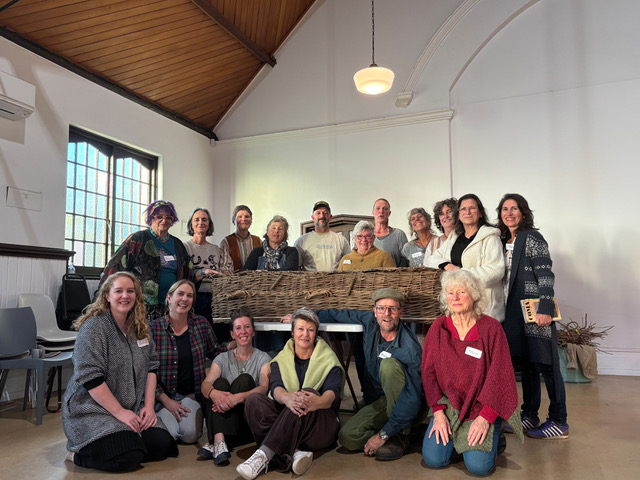
A group of people with a completed coffin. Photo: Ana Lazovic.
Ms Elliot said the workshops were an opportunity for people to consider questions about death and what it meant to care for the deceased.
“People can let their guard down,” she said. “It is often a starting point to think about what they might like for themselves when they die. It is also a chance to begin conversations with friends and family.”
She said people were interested in the workshops to learn about shrouding and how to make one. They always came with curiosity and good humour.
“To wash and shroud and spend time with your person is such an important part of the bereavement process. It is the final act of care that you can give them,” Ms Elliot said.
Ms Forest said death had been institutionalised and in a couple of generations we had forgotten how to do death well.
“It is like births. For centuries it was done at home,” she said. “People here are taking death back.”
Details and bookings for the coffin weaving and shroud making workshops can be found at the Walawaani Way website.








